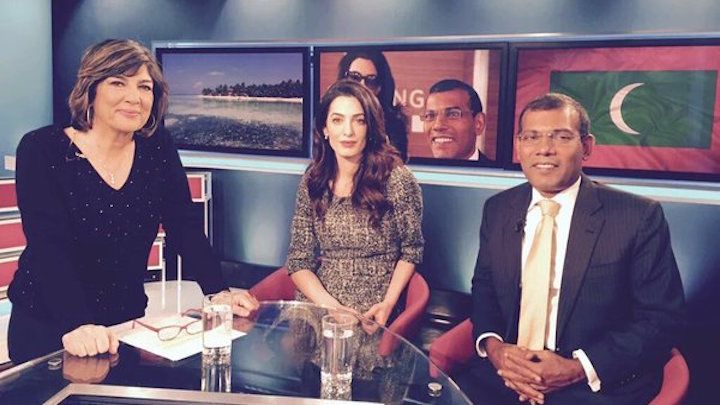Nasheed’s media blitz: IS recruitment, political repression, and 2018 election
In an interview with CNN’s Christiane Amanpour alongside his celebrity lawyer Amal Clooney, the 48-year-old opposition leader said he will challenge President Abdulla Yameen in the 2018 presidential election. “I think I will have to fight the next election. It’s unfinished business. Everything seems to be very half-baked,” he said.

27 Jan 2016, 09:00
Former President Mohamed Nasheed went on a media blitz in the UK yesterday, appearing on CNN, BBC, and Channel 4 to talk about his imprisonment, political repression, and the recruitment of Maldivians by militant groups.
In an interview with CNN’s Christiane Amanpour alongside his celebrity lawyer Amal Clooney, the 48-year-old opposition leader said he will challenge President Abdulla Yameen in the 2018 presidential election.
“I think I will have to fight the next election. It’s unfinished business. Everything seems to be very half-baked,” he said.
“But I would rather sit and read, and watch a film, but I think there’s a lot that needs to be done,” he added.
Become a member
Get full access to our archive and personalise your experience.
Already a member?
Discussion
No comments yet. Be the first to share your thoughts!
No comments yet. Be the first to join the conversation!
Join the Conversation
Sign in to share your thoughts under an alias and take part in the discussion. Independent journalism thrives on open, respectful debate — your voice matters.




